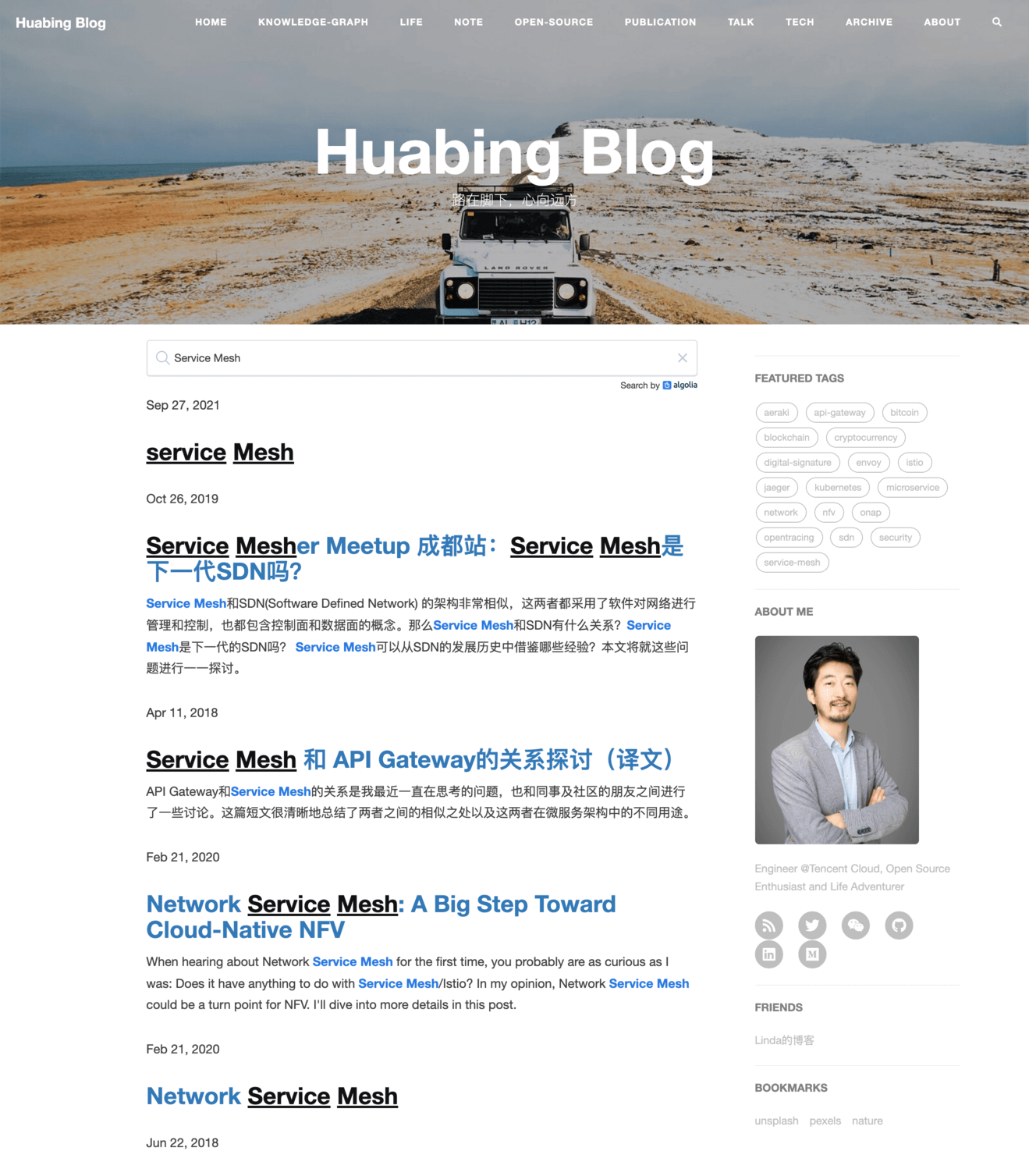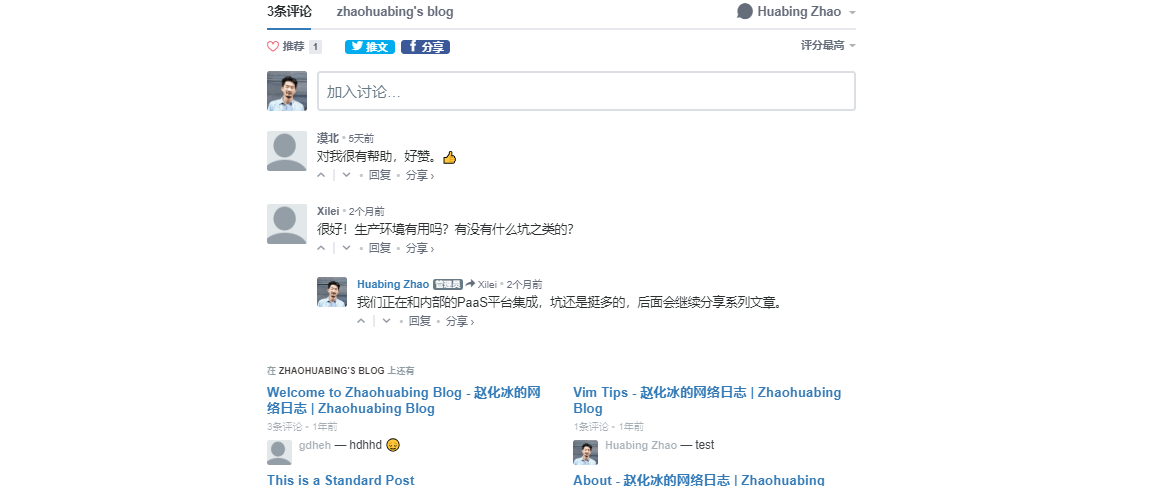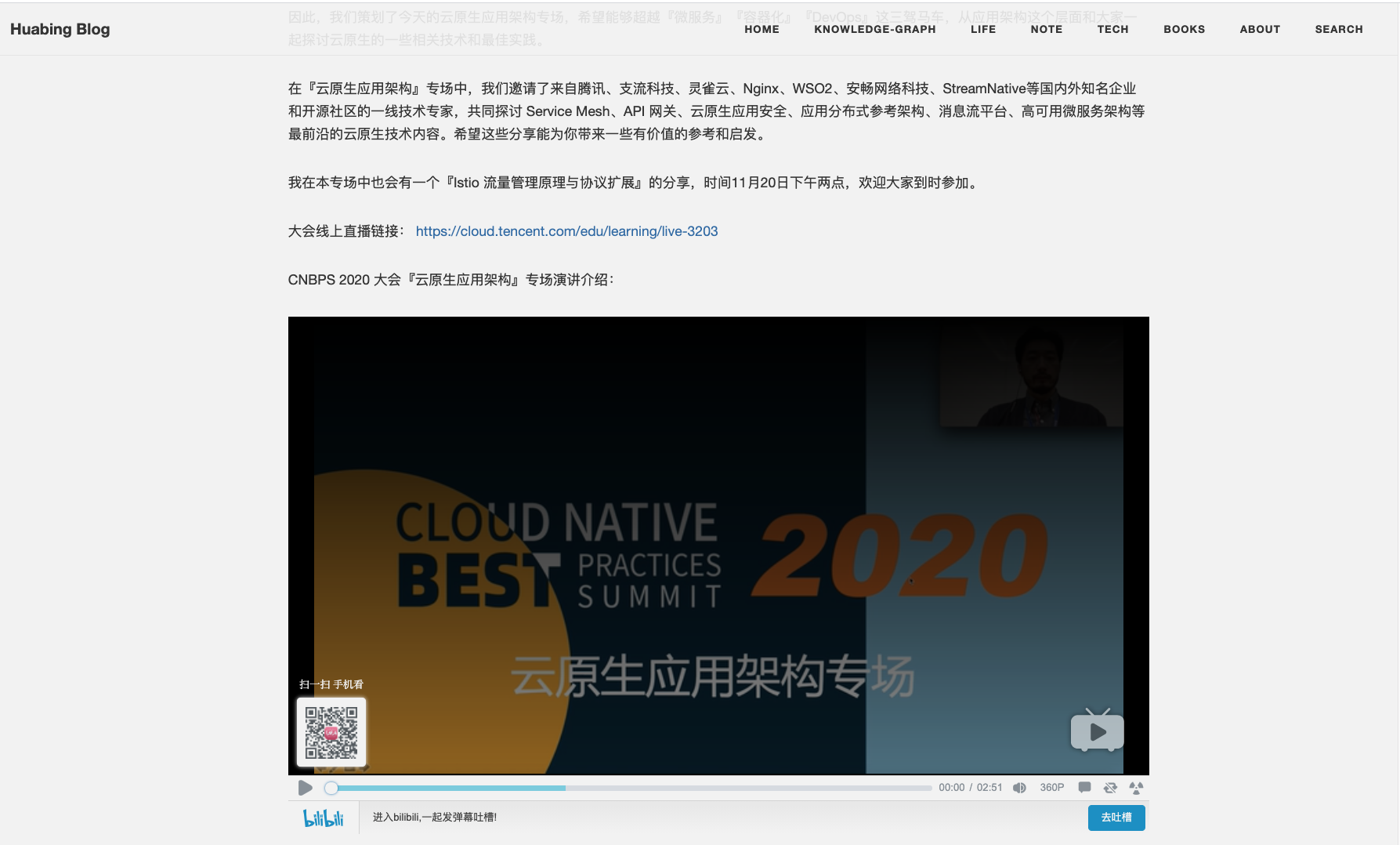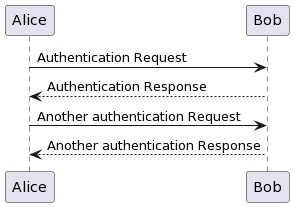CleanWhite is a clean, elegant, but fully functional blog theme for Hugo. Here is a live demo site using this theme.
It is based on huxblog Jekyll Theme and Clean Blog Jekyll Theme.
These two upstream projects have done awesome jobs to create a blog theme, what I'm doing here is porting it to Hugo, of which I like the simplicity and the much faster compiling speed. Some other features which I think could be useful, such as site search with algolia and proxy for Disqus access in China, have also been built in the CleanWhite theme. Other fancy features of upstream projects are not supported by this Hugo theme, I'd like to make it as simple as possible and only focus on blog purpose, at least for now. While I created this theme, I followed the Hugo theme best practice and tried to make every part of the template as a replaceable partial html, so it could be much easier for you to make your customization based on it.
The simplest way is to start with the example site coming with this theme, then you can play around and add your own stuff.
$ mkdir test
$ cd test
$ mkdir themes
$ cd themes
$ git clone https://github.com/zhaohuabing/hugo-theme-cleanwhite.git
$ cp -r hugo-theme-cleanwhite/exampleSite/** ../
$ cd ..
$ hugo serve
If your site is already a git project, you may want to choose to add the cleanwhite theme as a submodule to avoid messing up your existing git repository.
$ mkdir themes
$ git submodule add https://github.com/zhaohuabing/hugo-theme-cleanwhite.git themes/hugo-theme-cleanwhite
Run Hugo Build-in Server Locally
$ hugo serve -t hugo-theme-cleanwhite
Now enter localhost:1313 in the address bar of your browser.
If you start from scratch, there is a working Hugo site configured with the CleanWhite theme in the exampleSite directory. You can use it as a starting point for your site.
For more information read the official setup guide of Hugo
First, let's take a look at the config.toml. It will be useful to learn how to customize your site. Feel free to play around with the settings.
The following comment systems have been supported by this theme:
Giscus is a comment system powered by GitHub Discussions.
Install the Giscus app on your GitHub repo, and set the parameters as below:
[params.giscus]
data_repo="your GitHub repo"
data_repo_id="your repo id"
data_category="your category"
data_category_id="your category id"
data_mapping="pathname"
data_reactions_enabled="1"
data_emit_metadata="0"
data_theme="light"
data_lang="en"
crossorigin="anonymous"
To enable Disqus, create an account in Disqus and write down your shortname.
disqusShortname = "your-disqus-short-name"If Disqus can't be directly accessed, we can set up a proxy with disqus-php-api in a host which sets between the client browser and the Disqus server. The idea is that if Disqus can be reached in the guest network, the blog page will show the original Disqus comments UI, otherwise, it will downgrade and use the proxy to access the Disqus, the UI will be a little different, but the visitors can still write their comments on the page.
The client side java script has already been integrated to CleanWhite them, but you need to set up a proxy server yourself.
The proxy is written in php, which can be found here: https://github.com/zhaohuabing/disqus-php-api/tree/master/api
You need to specify your Disqus account information in the config.php.
define('PUBLIC_KEY', '');
define('SECRET_KEY', '');
define('DISQUS_USERNAME', '');
define('DISQUS_EMAIL', '');
define('DISQUS_PASSWORD', '');
define('DISQUS_WEBSITE', '');
define('DISQUS_SHORTNAME', '');
Set the proxy server address in the site config file of your Hugo project.
disqus_proxy = "http://yourdisqusproxy.com"Twikoo is a simple, safe, free comment system based on Tencent CloudBase (tcb).
To deploy Twikoo, please refer to the installation guide on the twikoo website.
Just enter the twikoo env_id in the configuration file to connect your blog to the deployed Twikoo.
twikoo_env_id = "your twikoo env id"
Follow this tutorial to create your index in Algolia. The index is just the storage of the indexing data of your site in the the cloud . The search page of CleanWhite theme will utilize this indexing data to do the search.
Go to the directory where you have your Hugo site and run the following commands:
$ npm init
$ npm install atomic-algolia --saveNext, open up the newly created package.json, where we’ll add an NPM script to update your index at Algolia. Find "scripts", and add the following:
"algolia": "atomic-algolia"
Algolia index output format has already been supported by the CleanWhite theme, so you can just build your site, then you’ll find a file called algolia.json in your public directory, which we can use to update your index in Algolia.
Generate index file:
$ hugoCreate a new file in the root of your Hugo project called .env, and add the following contents:
ALGOLIA_APP_ID={{ YOUR_APP_ID }}
ALGOLIA_ADMIN_KEY={{ YOUR_ADMIN_KEY }}
ALGOLIA_INDEX_NAME={{ YOUR_INDEX_NAME }}
ALGOLIA_INDEX_FILE={{ PATH/TO/algolia.json }}Make sure double curly braces be replaced together.
Now you can push your index to Algolia by simply running:
$ npm run algoliaAdd the following variables to your hugo site config so the search page can get access to algolia index data in the cloud:
algolia_search = true
algolia_appId = {{ YOUR_APP_ID }}
algolia_indexName = {{ YOUR_INDEX_NAME }}
algolia_apiKey = {{ YOUR_SEARCH_ONLY_KEY }}
Open search page in your browser: http://localhost:1313/search
You can optionally enable Google or Baidu Analytics. Type your tracking code in the
googleAnalytics = "G-XXXXX"
ba_track_id = "XXXXXXXXXXXXXXXX"Leave the googleAnalytics or 'ba_track_id ' key empty to disable it.
You can enable Wechat Pay & Alipay to allow readers send you money. So if they like your articles, you may even get rewards from your writing. Now you must be motivated to write more.
- Enable Wechat Pay & Alipay in the site config
reward = true-
Replace the QR codes of Wechat Pay & Alipay by overriding the photos in folder /static/img/reward/, otherwise the money will be sent to my accounts!
-
Enable Wechat Pay & Alipay in the site config
reward = trueMind Map is supported with shortcode 'mind', instering the following code snippet into your markdown file can create a mind map showing in the screenshots.
{{% mind %}}
- Root
- Level 1
- Level 2
- Level 2
- Level 3
- Level 3
- Level 4
- Level 5
- Level 6
- Level 1
- Level 2
- Level 2
- Level 1
- Level 2
- Level 2
- Level 1
- Level 2
- Level 2
- Level 1
- Level 2
- Level 2
{{% /mind %}}Use the below hugo shortcodes to embed videos into your posts.
Bilibili (B站)
{{< bilibili BV1kZ4y137gv >}}
Youtube
{{< youtube cllc1ZGlhsQ >}}
Vimeo
{{< vimeo 146022717 >}}
Plantuml support can be enabled at site or page level by adding the following line in the config.yaml or page header.
plantuml: true
Then you can just put plantuml source code in markdown files and the picture will be generated automatically.
An example:
```plantuml @startuml Alice -> Bob: Authentication Request Bob --> Alice: Authentication Response Alice -> Bob: Another authentication Request Alice <-- Bob: Another authentication Response @enduml ```
Thanks for the great jobs of huxblog Jekyll Theme and Clean Blog Jekyll Theme which are the the two upstream projects CleanWhite Hugo theme is based on.
If you find any problems, please feel free to raise an issue or create a pull request to fix it.
If it's helpful for you, I would appreciate it if you could star this repository, thanks!
Sincerely thank everyone who constantly keeps on using and supporting cleanwhite. Feel free to leave a comment on this issue to include information about your blog.








